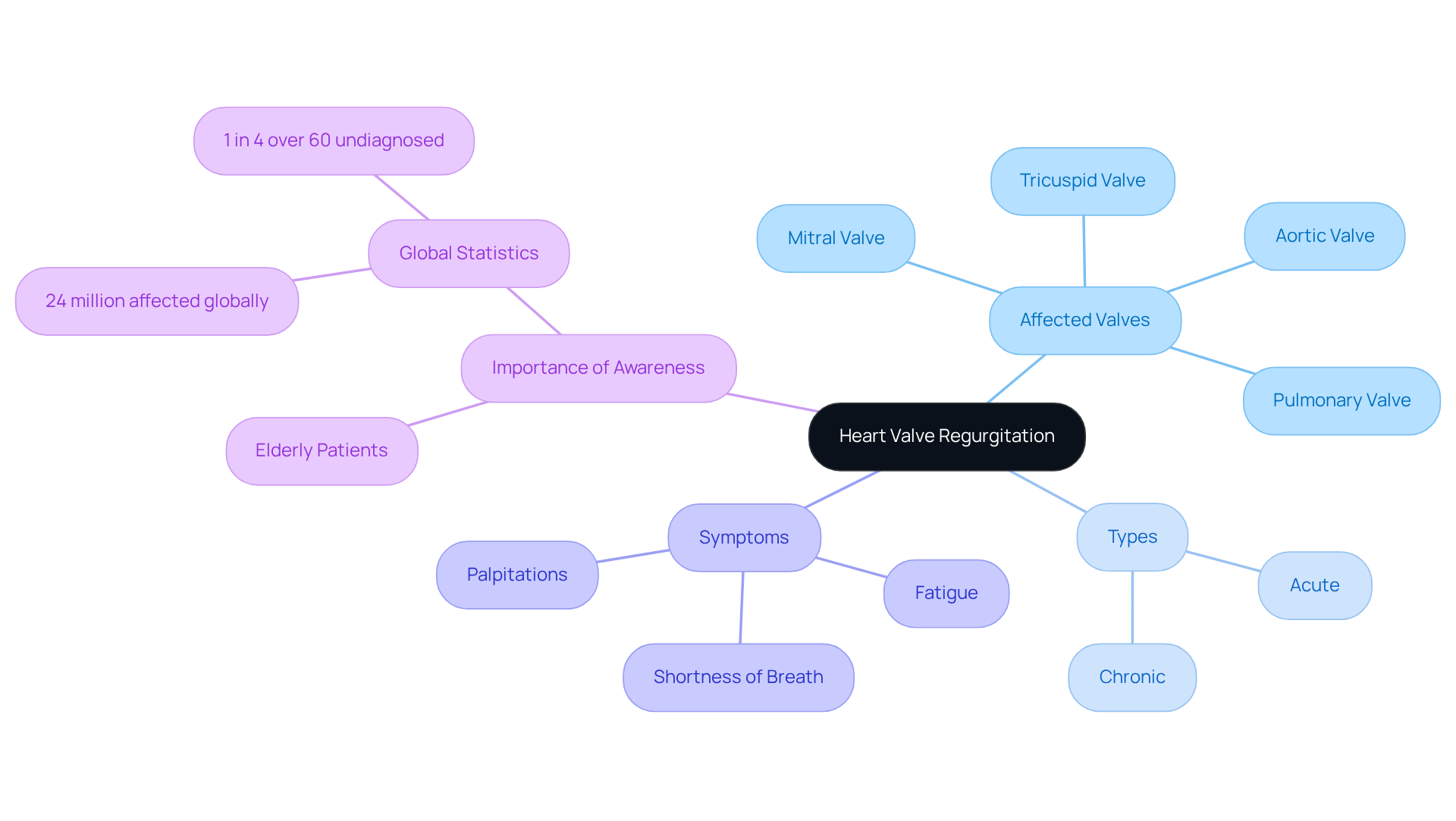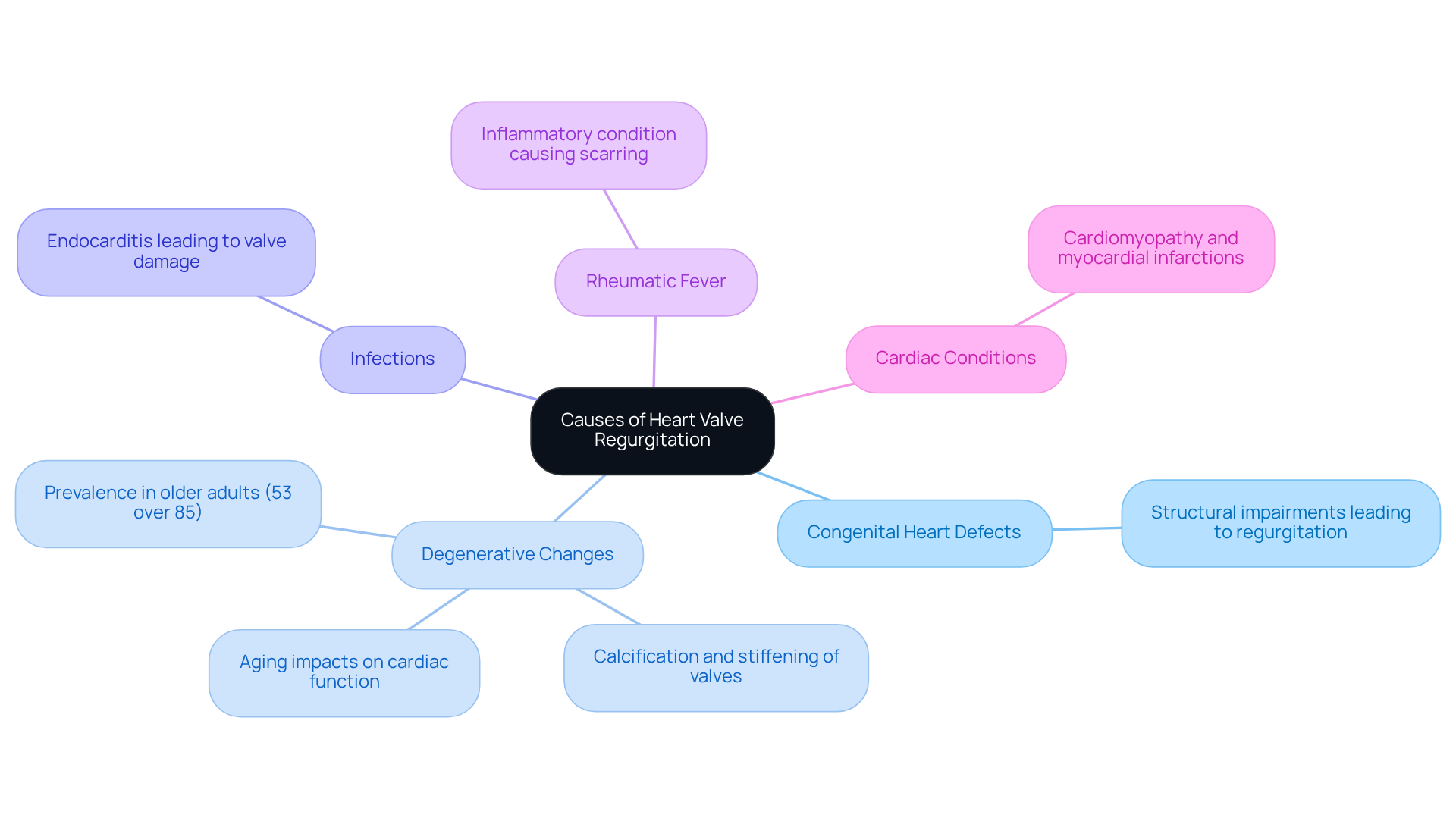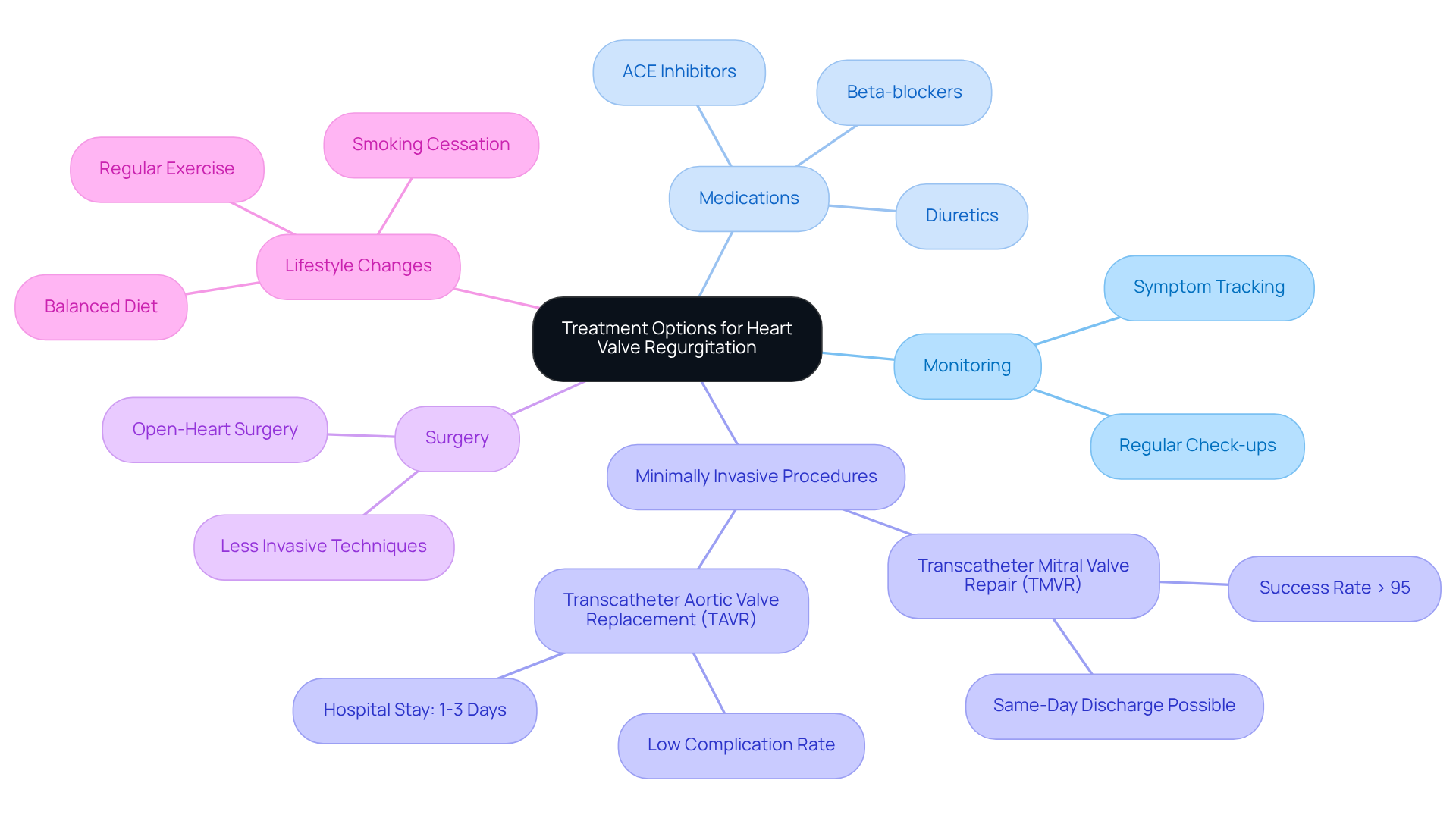


Heart valve regurgitation occurs when heart valves do not close properly, leading to backward blood flow. This condition can arise from various factors, including:
It’s essential to recognize the symptoms and understand the available treatment options. These can range from:
This is especially important for our elderly population, who may feel vulnerable.
We encourage you to pay attention to any concerning symptoms you may experience. Remember, you are not alone in this journey. There are effective treatments available that can significantly improve your quality of life. If you have any questions or concerns, please don't hesitate to reach out for support. Your health and well-being are our top priorities, and we are here to help you every step of the way.
Heart valve regurgitation is a condition that often goes unnoticed, yet it poses significant health risks, especially for our aging loved ones. With studies indicating that around one in four adults over 60 may harbor undiagnosed heart issues, understanding this condition is crucial for early detection and effective treatment. Symptoms such as fatigue and shortness of breath can easily be mistaken for normal aging, leading us to wonder: how can we, as individuals and healthcare providers, work together to recognize and manage this potentially life-altering condition before it escalates?
It's important to acknowledge the concerns that may arise when facing health issues. By fostering open communication and awareness, we can help ensure that those at risk receive the care they need. Together, we can create an environment where individuals feel supported in seeking help, ultimately improving their quality of life.
Heart valve regurgitation, often referred to as a leaky cardiac structure, occurs when one or more components of the heart do not close properly. This malfunction results in heart valve regurgitation, causing blood to flow backward instead of moving forward through the chambers and into the arteries. It's important to understand that heart valve regurgitation can affect any of the four heart structures: mitral, aortic, tricuspid, and pulmonary. Heart valve regurgitation can be classified into two forms: acute, which arises from sudden damage to the valve, and chronic, which develops gradually over time.
Recent studies indicate that approximately one in four healthy individuals over the age of 60 may have undiagnosed heart conditions, including backflow. Symptoms of heart valve regurgitation can include fatigue, shortness of breath, and palpitations, particularly in older adults who may also be facing other health challenges. In fact, research reveals that cardiovascular disease affects around 24 million people globally, underscoring the importance of awareness and early detection.
For elderly patients, recognizing these symptoms is essential, as they are often mistaken for other age-related health issues. Understanding the prevalence and impact of cardiac dysfunction can lead to timely interventions, ultimately improving health outcomes for this vulnerable group. If you or a loved one are experiencing any of these symptoms, please consider reaching out for support. Your health matters, and taking proactive steps can make a significant difference.

Heart chamber backflow can arise from various factors, particularly affecting our elderly loved ones. Understanding these causes is essential for early detection and management, especially for those who may not show symptoms. Key contributors include:
It's concerning to note that around 10% of individuals aged 75 and older may have moderate to severe valve disease. This highlights the importance of regular screening and monitoring in this vulnerable group. In fact, it takes about 15 echocardiograms to identify one case of clinically significant valvular cardiac condition among those aged 75 years or older, showcasing the challenges in diagnosis.
At Amavita, we truly care about your heart health. Our CardioElite™ program serves as a clinical force multiplier, offering advanced imaging capabilities and thorough assessments tailored for individuals at high risk. By integrating AI and AHA certification into our approach, we ensure that we effectively address these common cardiac issues. Through proactive, data-informed care, we aim to enhance the management of heart valve regurgitation and reduce the risk of readmissions, ultimately improving outcomes for our senior individuals. Remember, you are not alone on this journey; we are here to support you every step of the way.

Therapy for valve regurgitation varies based on the severity of the condition and the specific valve involved. It's essential to understand your options, and we are here to guide you through them with compassion.
At Amavita, every treatment plan is personalized, taking into account your age, health status, and preferences. The advancements in minimally invasive procedures not only provide effective symptom relief but also improve your quality of life, making them a preferred option for many, particularly older or frail patients. Additionally, our comprehensive cardiac evaluation process ensures that all aspects of your heart health are thoroughly assessed, further enhancing the effectiveness of your treatment plan. Remember, you are not alone in this journey; we are here to support you every step of the way.

Heart valve regurgitation is a significant cardiac condition that deserves our attention and understanding. This article has explored the complexities of this disorder, shedding light on its causes, symptoms, and treatment options. It is crucial to recognize that heart valve regurgitation can affect individuals of all ages, especially the elderly. Early detection and effective management can make a meaningful difference in their lives.
Key insights reveal various causes of regurgitation, including:
The importance of monitoring symptoms and seeking timely medical intervention cannot be overstated. This is particularly vital given the high prevalence of undiagnosed heart issues among older adults. Treatment options range from careful monitoring and medication to advanced minimally invasive procedures and lifestyle changes that can enhance heart health.
Ultimately, awareness and proactive care are essential in addressing heart valve regurgitation. By understanding the condition and its implications, individuals can take informed steps toward better heart health. Whether through regular screenings, lifestyle adjustments, or exploring treatment options, every action contributes to improved outcomes. It is vital to prioritize heart health and seek support when needed, ensuring that no one has to navigate this journey alone.
What is heart valve regurgitation?
Heart valve regurgitation, also known as a leaky cardiac structure, occurs when one or more components of the heart do not close properly, causing blood to flow backward instead of moving forward through the heart chambers and into the arteries.
Which heart structures can be affected by heart valve regurgitation?
Heart valve regurgitation can affect any of the four heart structures: mitral, aortic, tricuspid, and pulmonary valves.
What are the two forms of heart valve regurgitation?
The two forms of heart valve regurgitation are acute, which arises from sudden damage to the valve, and chronic, which develops gradually over time.
How common is heart valve regurgitation among older adults?
Recent studies indicate that approximately one in four healthy individuals over the age of 60 may have undiagnosed heart conditions, including heart valve regurgitation.
What are the symptoms of heart valve regurgitation?
Symptoms of heart valve regurgitation can include fatigue, shortness of breath, and palpitations, particularly in older adults.
Why is it important to recognize symptoms of heart valve regurgitation in elderly patients?
Recognizing these symptoms is essential for elderly patients because they are often mistaken for other age-related health issues, and timely intervention can improve health outcomes.
How prevalent is cardiovascular disease globally?
Research reveals that cardiovascular disease affects around 24 million people globally, highlighting the importance of awareness and early detection of heart conditions.